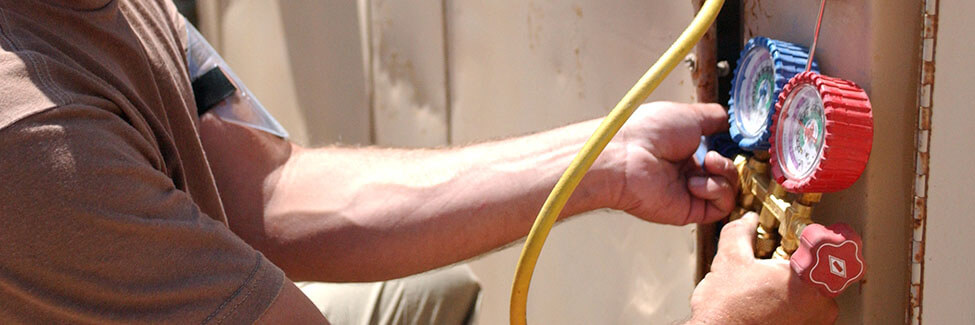
How to Become an HVAC Technician
HVAC technicians are skilled specialists who install, repair, and maintain heating and cooling systems in residential and commercial facilities. These technicians also sell service contracts to new and existing customers.
To become an HVAC (short for heating, ventilation, and air conditioning) technician, you must be highly prepared to compete in a market that is growing more and more, all in order to perform HVAC jobs well, and contribute value to every single customer. This article is meant to be a primer on how to become an HVAC tech for those unfamiliar with the process. First, we’ll start with the work:
HVAC Tasks
Among the things that most HVAC technicians must handle are: installing new appliances, maintenance of broken or old equipment, knowledge of HVAC systems to make informed decisions, selecting materials, diagnosing failures that occur in both electrical and mechanical systems.
As an HVAC technician, you also be expected to use various tools, devices, and instruments necessary to air conditioning units, furnaces, air ducts, refrigerators, and more.
Education
A candidate for an HVAC license must first receive proper education. Potential HVAC technicians must successfully enroll in high school or receive a GED. They should participate in an industrial arts-related education at this time, gaining basic skills in math, technical drawing, physics, and electronics.
Technicians can enroll in an accredited HVAC training program based on their geographical location. HVAC training programs offer a curriculum consistent with HVAC installation and repair principles, offering classes in blueprint reading, construction, temperature control, and equipment design. Programs like these are offered both at trade schools and other locations, often ranging from a few months to two years in length.
Many states require individuals who wish to become licensed HVAC technicians to participate in an apprenticeship program. These programs can generally last three to five years, with formal apprenticeship programs allowing future HVAC technicians to combine practical and theoretical learning practices. During this program, an HVAC technician apprentice follows a licensed HVAC technician while also receiving classroom training. Apprenticeship programs are often administered by professional unions.
License Exam
Once an HVAC technician student has completed their studies, they’ll be ready to take their HVAC licensing exam.
Although the length and content of the test vary depending on location, they all test different aspects of the HVAC installation and repair process. In addition, some tests assess the applicant’s knowledge of electrical codes.
HVAC technicians who want to work with refrigerants must obtain an additional certification. Certification can be obtained for servicing small appliances, high-pressure refrigerants, and low-pressure refrigerants.
Wages
The median annual income for HVAC technicians at all levels of experience in the United States was $43,000, according to the Bureau of Labor Statistics (BLS). The bottom 25 percent earned less than $34,000 per year, while the top 25 percent earned more than $56,000. The most highly paid HVAC technicians earned more than $69,000 per year. Nice!
Conclusion
The number of HVAC service technician jobs is projected to grow 15 percent through 2026, according to the BLS. Now’s a great time to get your HVAC career started and take part in this evolving industry!
Still have questions? Ask an HVAC expert directly via chat or phone.
Published on 2020-03-24 by Ben Travis
Last updated on 2020-03-24


